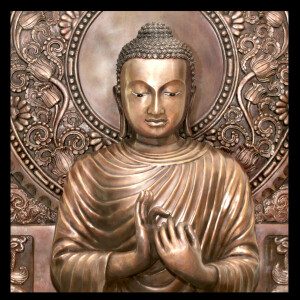
The Buddha's Great Renunciation | Dhamma Talk by Ajahn Dhammasiha
 2022-05-11
2022-05-11
Download
Right click and do "save link as"
Ajahn Dhammasiha talks about the "Great Renunciation", how the Buddha left the pampered life as prince behind, and set out alone to find freedom from suffering and death:
The Buddha's father, King Suddhodhana, had confined his son, the young Bodhisatta, in the pleasure palace, where he tried to keep all suffering away from him. He wished for him not to renounce, but to continue in household life, and to become a most powerful wheelturning emperor. No old or sick persons were ever allowed into his presence, and all flowers were removed before he could see them wilting.
However, when the Bodhisatta went on an outing to the pleasure gardens, he encountered a very old man. Having never seen anyone old at all, he enquired from his Charioteer, Channa:
"Who is that? What happened to him?"
Being informed by Channa, he returned straight back to the palace and started contemplating.
"Will I become so old one day as well? What about my beautiful wife Yasodhara? How about my own father and family?"
The same happend on similar outings when he encountered a sick person and a dead body, and finally, on the last outing, the Bodhisatta saw a calm and peaceful looking renunciant. He resolved to leave the palace life behind right today, and to become a homeless ascetic himself.
He rode out into the Indian Full Moon Night on his white stallion Khantaka, cut of his hair and beard with his sword, and started his spiritual journey.
Ajahn Dhammasiha points out that this story is also a powerful metaphor for our own mind. Like the Buddha's father, our own mind tries to hide the realites of old age, sickness and death from ourselves, so that we can continue "living in the pleasure palace" = enjoying the sensual pleasures in life.
If we can break out of this delusion, we can set out on a spiritual search, just like the Bodhisatta.https://www.dhammagiri.nethttps://www.youtube.com/channel/UCJINt0JJBfFm_x0FZcU9QJwhttps://tinyletter.com/dhammagiri/archive
view more
More Episodes
012345678910111213141516171819
Create your
podcast in
minutes
- Full-featured podcast site
- Unlimited storage and bandwidth
- Comprehensive podcast stats
- Distribute to Apple Podcasts, Spotify, and more
- Make money with your podcast
It is Free
- Privacy Policy
- Cookie Policy
- Terms of Use
- Consent Preferences
- Copyright © 2015-2024 Podbean.com






